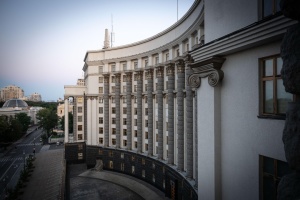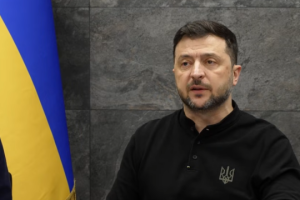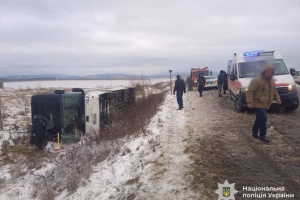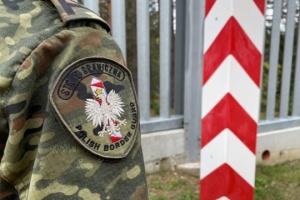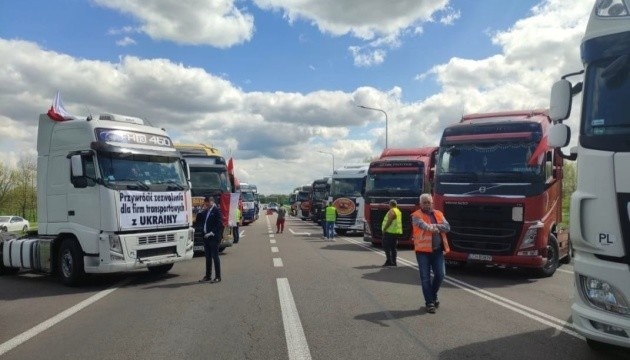
Why Polish carriers are blocking border with Ukraine
On November 6, at about 13:30, the announced protest of Polish carriers on the Polish-Ukrainian border began. The Korczowa-Krakowiec, Hrebenne-Rava-Ruska, and Dorohusk-Yagodyn checkpoints were blocked for freight traffic. The Ministry of Communities, Territories and Infrastructure of Ukraine reported that the Ukrainian side has not yet received any official demands. Despite the fact that the leadership of the Ministry of Reconstruction is in constant contact with Polish colleagues, after three conversations with representatives of the European Commission's department dealing with transport issues, the situation as of the afternoon of November 9 still remains uncertain. Moreover, the European Commission has not yet received official information from Poland on the state of the situation at the border and the measures to be taken to resolve it.
Let's try to figure out what prompted Polish carriers to take such drastic steps.
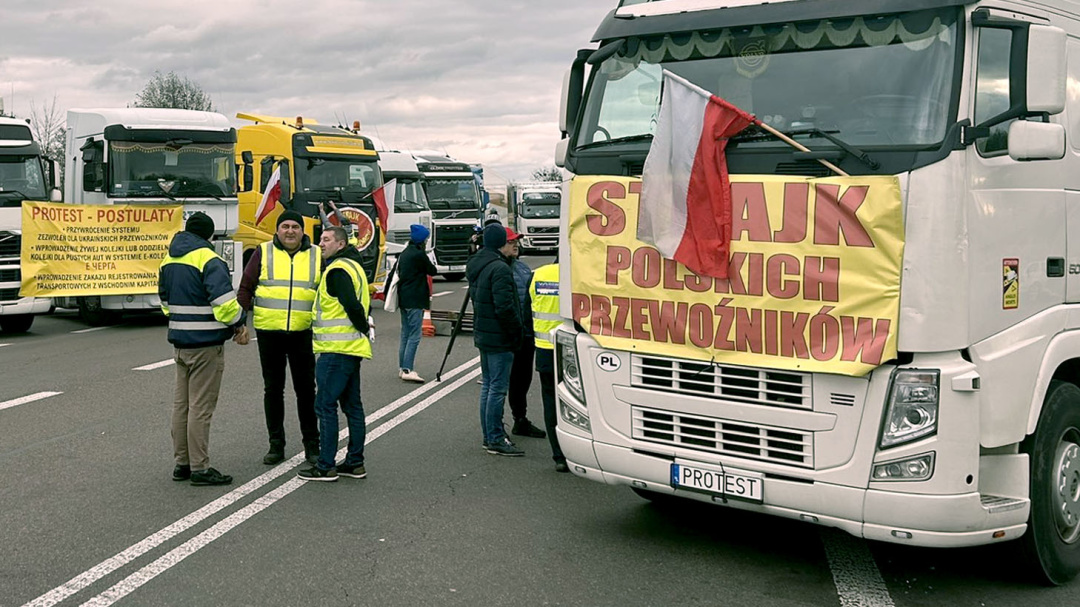
THE BEGINNING OF THE PROTEST
On October 27, the International Transport Association of Ukraine (ITAU) was among the first to report that Polish road carriers were preparing to block the joint border crossings with Ukraine for commercial vehicles.
"Starting from 03.11, Polish carriers plan to go on strike and block all borders with Ukraine. The strike is planned for two months. They will not be able to block all the borders, they will be doing some duty between the borders. In this regard, there may be even more delays in traffic and more difficulties in their organization," she wrote on her Facebook page.
From the photo of the information message in Polish attached to the post, it became known that the local business intends to strike from November 3 to January 3, 2024, i.e. for two months.
The protesters' demands included the following items:
● return of the permit system for Ukrainian carriers;
● Toughening of the ECMT transportation rules for foreign carriers
● creation of a separate queue in the eCheck service for cars with EU license plates;
● creating a separate queue at all borders for empty trucks;
● providing access to the Ukrainian "Shlyakh" system.
On November 3, the action was postponed to November 6, and the three largest checkpoints on the Polish-Ukrainian border - Korczowa-Krakowiec, Hrebenne-Rava-Ruska, and Dorohusk-Yagodyn - were blocked.
On the afternoon of November 6, the carriers made good on their threats: at around 1:30 p.m., the entrances to the three checkpoints from Poland were blocked by trucks. The estimated number of participants in the action was 200 people and 100 trucks. The blockade involves owners of trucking companies. There are no drivers because they "have to work". In the first hours of the strike, the participants said they wanted it to end "today or tomorrow, so that the people responsible for decision-making would appear here. Both from your side and from our side."
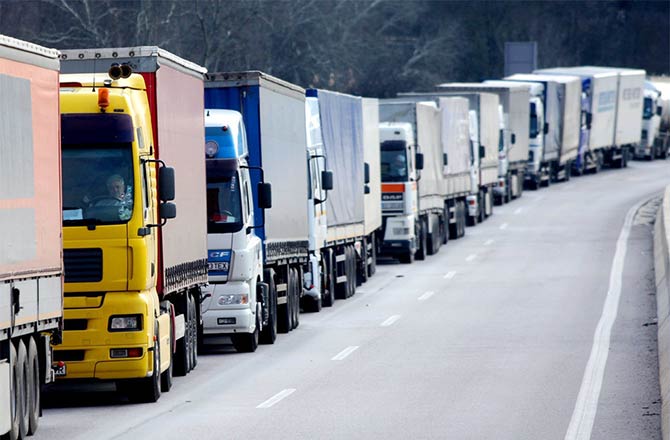
SHARP CORNERS
Strange as it may seem, despite the fact that the protests have been going on for three days, their ultimate goal is still not entirely clear. Most of the demands, according to the Ministry of Reconstruction, are purely technical in nature and are generally addressed to the Polish government. For example, the demand to ban the registration of foreign carrier companies in Poland.
At the beginning of the story, the ITAU assumed that the Poles were not satisfied with the high competition that developed after the liberalization of international transportation between Ukraine and the EU countries. Therefore, one of the demands is the abolition of transport visa-free travel, i.e. the Agreement on Liberalization of Freight Transport between the EU and Ukraine, which was signed on June 29, 2022.
It's strange that the protesters are raising the issue in this way. After all, this document has been ratified and agreed by all EU members and signed between the European Union and Ukraine. Therefore, Poland cannot terminate it unilaterally. This is confirmed by the Polish government.
"Regarding the abolition of transportation liberalization, by the way, the Polish side officially replied to us before the protests began that this requirement was impossible to fulfill. And this position of the Polish government was communicated in an official letter to Polish carriers: it is impossible to cancel the agreement on liberalization of transportation, because it is a matter of bilateral agreements between the EU and Ukraine. And Poland cannot do anything unilaterally. This was clearly stated," Deputy Minister of Infrastructure of Ukraine Serhiy Derkach explained in an interview with Ukrinform.
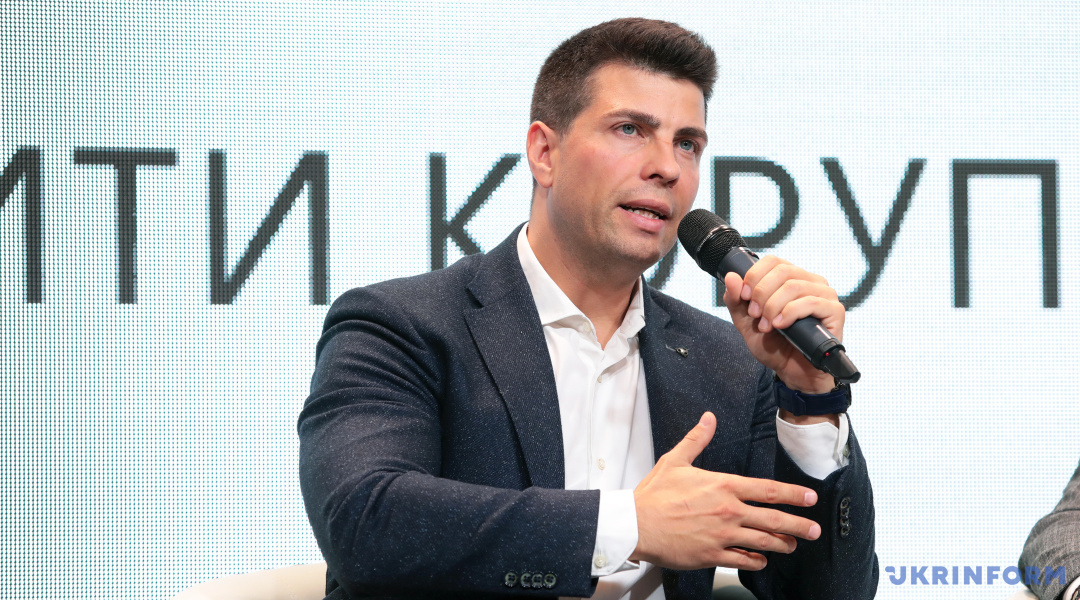
It is noteworthy that there has been a lot of controversy over border crossing permits for Ukrainian drivers. From year to year, Poland provided them in a limited number, which prevented Ukrainian carriers from fully entering the European trucking market, which was dominated by Polish carriers. It is clear that transport visa-free travel would sooner or later become a stumbling block in our business relations with our neighbor.
The requirement to grant preferences to trucks with EU license plates and empty trucks returning from unloading in Ukraine looks equally unrealistic. As the Poles themselves, quoted by Rzeczpospolita, explain their position, they have to carry out about half a million shipments a year to make money. Meanwhile, with the introduction of the electronic registration service in Ukraine, cars with Polish license plates (which make up the lion's share of those conditional "cars with EU license plates" in the requirements) have to join the eCherha on a par with Ukrainian ones. And the electronic system is designed to facilitate the work of local companies, according to our western neighbors.
"To legally put my car in the electronic queue, I have to enter Ukraine. Polish carriers go to Lviv, all the way to Kyiv. It takes 2 days - and they stand in line for 10 days. However, a Ukrainian company can book a place a few days before the start of transportation. After registration, you can change the car's registration numbers in the system, but our companies don't have this option," says Tomasz Borkowski, a representative of the protesting carriers. He notes that by returning empty, his colleagues lose both time and money.
According to Serhiy Derkach, giving priority to Polish trucks only because they are Polish is a discriminatory requirement for all other carriers, not just Ukrainian ones. And what if drivers from other countries start protesting?
It is unlikely that anyone will accept the demand for privileges for empty vehicles. After all, Ukraine is primarily interested in exporting its products, i.e. in the fastest possible passage of loaded vehicles when crossing the border with the EU. Therefore, it would be strange to give the green light to carriers that bring imports to us.
"For our part, we offered to consider the proposal - and have already sent an official letter to the Polish side, the European Commission - to create a separate queue and the possibility of starting the passage of empty vehicles through the Uhryniv-Dolhobyczów checkpoint. This is a checkpoint on the Polish side, and it is currently functioning as a joint checkpoint, but no trucks are going through it. But there is a separate lane there that is not used, and we believe it can be used to allow empty trucks to pass in both directions. This will increase the throughput in general and, possibly, satisfy one of the strikers' demands," Derkach said today during an online meeting with Ukrainian road carriers.
It is also impossible to have free access to the Shlyakh system, which was introduced under martial law, when men are banned from leaving Ukraine. The fact is that mostly hired Ukrainian drivers drive trucks belonging to Polish companies to Ukraine at war. Therefore, the Polish side is interested in being able to register such employees in the Shlyakh system as soon as necessary.
"But this requirement, in principle, is impossible to fulfill. During martial law, our men cannot safely travel abroad, work for foreign companies, whether in Poland, Germany, or elsewhere, and travel between Ukraine and these countries. And if we are speaking for drivers, this is a discriminatory rule against other men who work for foreign companies and have restrictions on traveling abroad," the Deputy Minister comments.
So, the situation in general really looks like a dead end. At least for now.
The protesters themselves are not optimistic either. According to Piotr Mikel, director of the transport department of the Association of International Road Carriers of Poland (ZMPD), the protesters' demands will be difficult to implement.
"I don't know if it will be possible to return to commercial vehicle permits next year. The EU has abolished the licensing requirements for bilateral and transit traffic as an act of assistance to a warring state. Nothing indicates that the situation will change in the near future," he said.
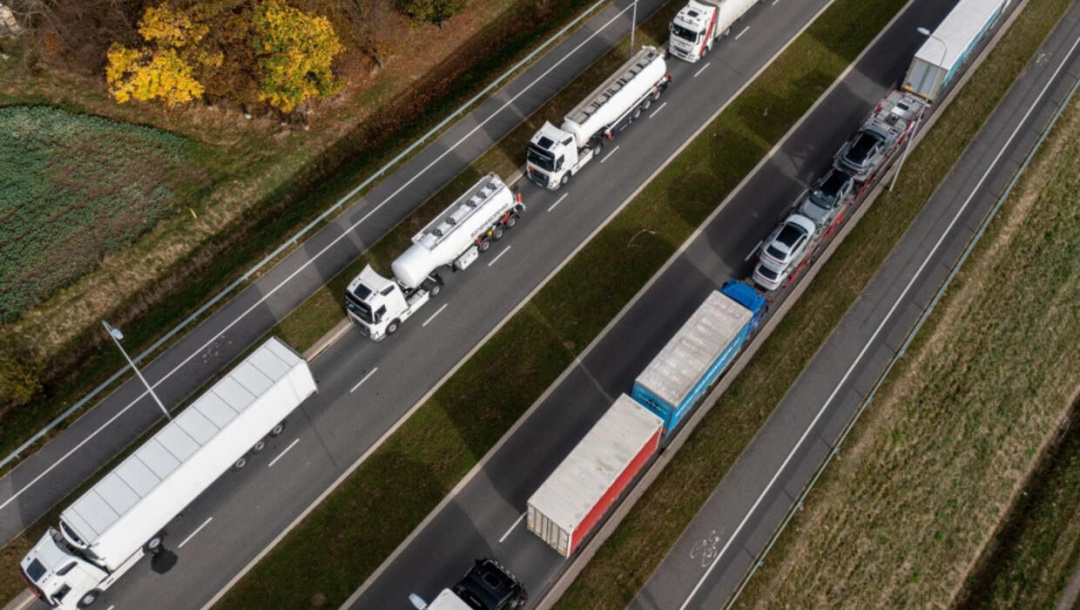
RISING TENSIONS
Nevertheless, Ukraine has already voiced its position on this issue: blocking the border harms the interests of both countries and creates risks for the functioning of the European Solidarity Road Initiative. And Ukraine's Ambassador to Poland, Vasyl Zvarych, called such actions a painful stab in the back of Ukraine, which is suffering from Russian aggression.
Several government agencies on both sides have already been involved in resolving the issue. According to the Ministry of Reconstruction, the situation is beyond their control and requires the intervention of political departments. That is why the foreign ministries of both countries and EU representatives are now actively communicating.
Meanwhile, the situation at the border crossings continues to deteriorate. As early as November 7, the State Border Guard Service of Ukraine reported that about a thousand vehicles were waiting to cross the border into Ukraine from the Polish side alone in all three directions. The number of trucks allowed to cross from our side also decreased several times.
To be fair, the protesters have kept their promise to let one truck per hour across the border, as well as trucks carrying security and humanitarian supplies, perishable food, etc. However, as the queue grows on both sides, it is difficult to guarantee that nothing will change in the protesters' positions. Therefore, the State Border Guard Service advises to use other checkpoints until the situation is resolved.
"Those who want to cross other checkpoints where the traffic is not blocked can check the website of the State Border Guard Service to see the workload at each of these checkpoints, choose a route and register in the electronic queue," Demchenko explained at a briefing at Ukrinform.
According to Derkach, the staff of the Ukrainian consulate and embassy in Poland are negotiating with their Polish counterparts to provide our drivers who are stuck on the road on the other side of the border with everything they need.
"We are raising this issue because on our side, the Ukrainian side, thanks to the electronic queue, there is no accumulation of cars on the border, but on the Polish side we see kilometer-long queues," said Derkach.
Yulia Abakumova, Kyiv

